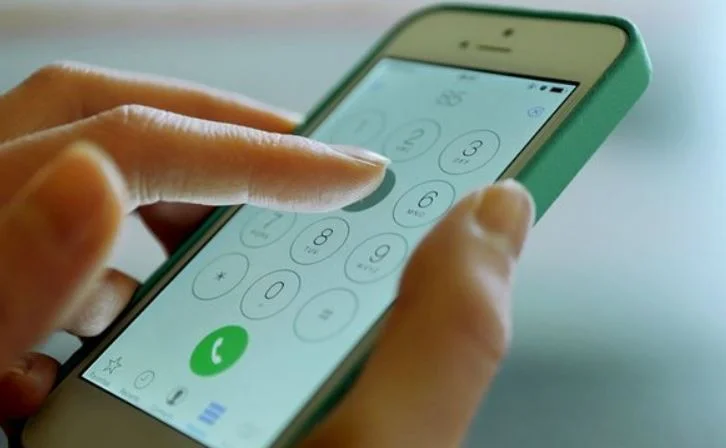Introduction to the phone number 407-480-1805
Have you ever received a call from an unfamiliar number, only to feel a sense of dread wash over you? If you’ve seen 407-480-1805 flash across your screen, you’re not alone. Many people have reported receiving calls from this number, and it raises an important question: Is it just another telemarketer or something more sinister? The world of phone scams is vast and often bewildering. Understanding what lies behind these calls can help protect yourself and others. Let’s dive into the details surrounding this particular number and uncover the potential risks associated with it. Your safety is worth exploring further!
The potential scam behind the number
Calls from 407-480-1805 have raised red flags for many. Scammers often use local numbers to create a false sense of trust, making it more likely that people will answer.
This particular number has been linked to various fraudulent schemes. Victims report receiving calls claiming they’ve won prizes or need to verify personal information. These tactics can lead unsuspecting individuals into dangerous situations.
Fraudsters may also impersonate legitimate businesses, asking for sensitive data like Social Security numbers or bank details. The goal? To steal your identity and money without raising suspicion.
If you receive a call from this number, it’s crucial to remain cautious. Don’t engage with the caller or share any personal information. Awareness is key in avoiding these scams and protecting yourself from potential harm.
What to do if you receive a call from this number
If you receive a call from 407-480-1805, the first step is to stay calm. Don’t rush to answer or engage with the caller immediately.
Let it go to voicemail if possible. Scammers often avoid leaving messages, which can help you identify their intent.
If you do answer, don’t provide any personal information. Legitimate organizations will never ask for sensitive details over the phone unexpectedly.
You can also perform a quick online search for this number while on the call. See what others have reported about it before deciding how to respond.
Consider blocking the number after your assessment. Most smartphones have features that make this easy and effective in preventing future calls from unwanted numbers.
Document any details about the call like time, date, and what was discussed. This information could be helpful if you decide to take further action later on.
How to protect yourself from phone scams
Protecting yourself from phone scams starts with awareness. Always scrutinize incoming calls, especially from unknown numbers.
Ignore any unsolicited requests for personal information. Legitimate organizations typically won’t ask for sensitive data over the phone.
Consider using call-blocking apps or features provided by your mobile carrier. These tools can significantly reduce unwanted calls.
If you receive a suspicious call, hang up and verify the company’s contact details independently. Reach out to them directly through official channels rather than calling back the number that contacted you.
Educate friends and family about common scam tactics. Sharing knowledge strengthens community defenses against fraudsters trying to exploit vulnerabilities.
Stay updated on current scams by following consumer protection resources online. Knowledge of trends helps in identifying potential threats quickly and effectively, ensuring you’re always one step ahead of scammers.
Other common phone scams to be aware of
Phone scams come in various forms, and it’s essential to stay alert. One prevalent type is the IRS impersonation scam. Callers pose as tax officials, claiming you owe money and threatening with legal action.
Another common scheme involves tech support scams. Here, scammers pretend to be from reputable companies like Microsoft or Apple. They claim your device has a virus and offer help—usually at a price.
Romance scams are also on the rise. Scammers create fake profiles on dating sites, building emotional connections before asking for money due to an “emergency.”
Unsolicited lottery or prize notifications can trick individuals into sharing personal information or sending payment upfront for taxes they supposedly owe on winnings that don’t exist.
Always remember: if it sounds too good to be true, it probably is! Stay cautious and informed about these tactics.
Reporting the scam and blocking the number
If you receive a call from 407-480-1805 and suspect it’s a scam, taking action is crucial. First, don’t engage with the caller. Hang up immediately to avoid giving them any personal information.
Next, report the number. You can file a complaint with the Federal Trade Commission (FTC) or your local consumer protection agency. These organizations track scams and may take further action against fraudulent callers.
Blocking the number on your phone should be one of your next steps. Most smartphones allow users to block unwanted calls easily through their settings or call logs.
Consider using third-party apps designed for blocking spam calls as an added layer of security. They often provide real-time alerts about potential scams, helping keep your phone safe from unwanted intrusions.
Conclusion: Stay vigilant and informed to avoid falling victim to phone scams
Staying vigilant and informed is crucial in today’s world, where phone scams are increasingly sophisticated. If you receive a call from 407-480-1805 or any other suspicious number, take the right steps to protect yourself and your personal information. Report the number if you suspect it’s a scam, and consider blocking it on your device.
Educate yourself about common phone scams to recognize red flags when they arise. Sharing this knowledge with friends and family can help them avoid falling victim as well. Always remember that scammers rely on fear tactics and urgency; don’t let them pressure you into making hasty decisions.
By remaining aware of potential threats like 407-480-1805, you’ll be better equipped to navigate the dangerous waters of unsolicited calls. Stay alert, trust your instincts, and never hesitate to seek assistance if something feels off regarding any communication you receive. Your safety is worth the effort!

